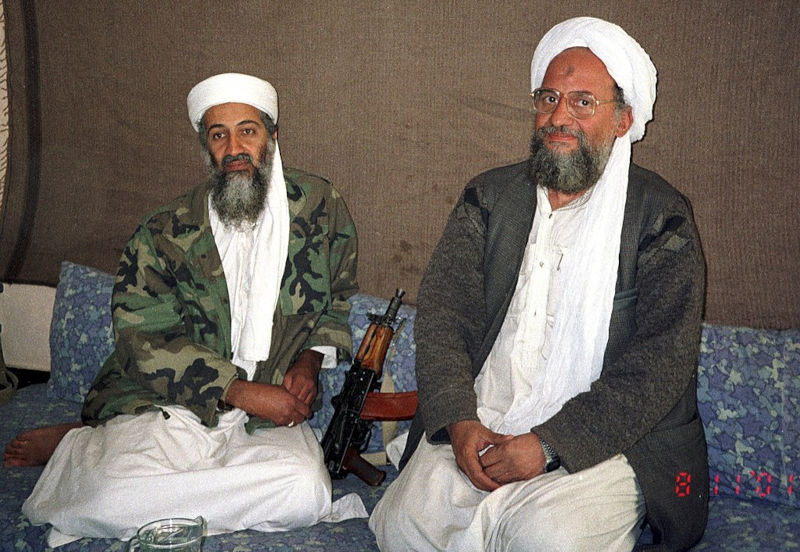The many lives of Ayman al-Zawahiri
August 26, 2022
Ayman al-Zawahiri is dead or so we are told. Al-Qaidas chief and successor to the slain Osama bin Laden, he was deemed the chief ideologue and mastermind behind the audacious September 11, 2001 attacks on the United States. On July 31, he was supposedly killed in a drone strike in Afghanistans capital, Kabul, while standing on his balcony.
Terrorism and security pundits, whose views are best considered from afar with stern scrutiny, are predictably speculating that the killing will have some effect on al-Qaida but are incapable of showing how. Vanda Felbab-Brown at Brookings is convinced that his death with have a negative strategic and demoralizing impact on al-Qaida though gives no inkling of how this might be so. Even by her own admission, Zawahiri was not involved in daily tactical al-Qaida planning.
The lack of US counter-terrorism capabilities, not to mention officially stationed personnel in Afghanistan, is no problem for Felbab-Brown. She admires the US forces for still getting the job done, if it can be put as crudely as that. This killing was an impressive show of the effectiveness and persistence of US counterterrorism efforts. Scorn is also reserved for the Taliban, who seemed to be playing host and continuing old habits of supping from the same bowl.
President Joe Biden also took pride in noting that such killings could be executed at a distance, and without the need for an ongoing US garrison. When I ended our military mission in Afghanistan almost a year ago, I made the decision that after 20 years of war, the United States no longer needed thousands of boots on the ground in Afghanistan to protect America from terrorists who seek to do us harm.
In November 2020, another commentator from the Brookings stable, Daniel Byman, wrote something almost identical in flavour to that of Felbab-Brown. Zawahiri had, on that occasion, had another one of his death flourishes, reportedly expiring in Afghanistan from natural causes.
Byman was keen to speculate. If Zawahri is dead, where will al-Qaida go next and what kind of movement will Zawahris successor inherit? With classroom authority, Byman opined that, Leaders matter tremendously for terrorist groups, especially jihadi ones, which often rise and fall based on the fortunes of their emir.
As things transpired, the leader in question was very much alive and kicking and reports of his death had been embarrassingly exaggerated. He appeared in a video message celebrating the withdrawal of US forces from Afghanistan, released on September 11, 2021.
The al-Qaida leader certainly has form. In August 2008, Zawahiris fate was of such interest to CBS News as to prompt a bold pronouncement. He was said to be in severe pain and in need of urgent treatment for injuries sustained in a strike. Lara Logan, the CBS News chief foreign affairs correspondent, had supposedly secured a letter written by local Taliban leader Baitullah Mehsud making that point. The injuries were said to be so critical that the leader was possibly dead. Logan acknowledged that there had been false death rumours floating around previously about the al-Qaida figure, but no denials had been issued from Pakistan, the US or al-Qaida websites. Not exactly formidably deductive.
Zawahiri has encountered death yet again, this time at the end of a drone strike on a safe house in Kabul. But things were far from clear. Former head of the National Directorate of Security in Afghanistan, Rahmatullah Nabil, claimed it was an American strike on IS-K (Islamic State-Khorasan Province) that took place on July 31. Not so, according to Amrullah Saleh, former Afghan vice-president, who attributed responsibility to the Pakistani Airforce.
The Taliban followed up, with spokesman Zabihullah Mujahid confirming that the strike had, in fact, been the work of a US drone. Such actions are a repetition of the failed experiences of the past 20 years and are against the interests of the US, Afghanistan and the region, Mujahid added.
US President Joe Biden duly issued his video-briefing corroborating the attack. Not that this necessarily clarified matters regarding Zawahiri. John Kirby, National Security Council coordinator for strategic communications, admitted that no DNA evidence had been obtained. Cockily, he asserted that, based on multiple sources and methods that weve gathered information from, we dont need it.
The pattern of killings and assassinations gloried in, only to be revised or disproved later, is very much part of the counterterrorist manual. US officials have indulged in this before, notably in the context of Osama bin Laden. At a certain point in time, it became irrelevant whether he lived or otherwise. The figure had died on so many occasions as to become a simulacrum, existing in an absurdist drama known as terrorism studies and counter-terrorist operations. At best, the obsession with capturing and killing him provided the personal touch, an individual whose targeting gave reassurance that wrongs could somehow be righted by disposing of him in extrajudicial fashion.
Bin Ladens slaying by the Navy Seals in May 2011 had a cinematic element and, in a rather fitting way, reconciled his dead-yet-not-dead existence to celluloid. The White House Situation Room showed President Barack Obama and his officials glued to the screen as the events in Abbottabad, Pakistan unfolded. Ghoulish reality television unfolded before an audience grimly transfixed, horrified and entertained.
Like his predecessor felled by US bullets, Zawahiris demise hardly changes the dynamic of the terrorist franchise he led. Killing such a man is not quite the equivalent of doing away with the manager of a banking branch, but the principle has a similarity to it. Such entities will continue to thrive, fed by the very forces that often claim to suppress them. Adherents will always be found; the hangman will never be disappointed.

